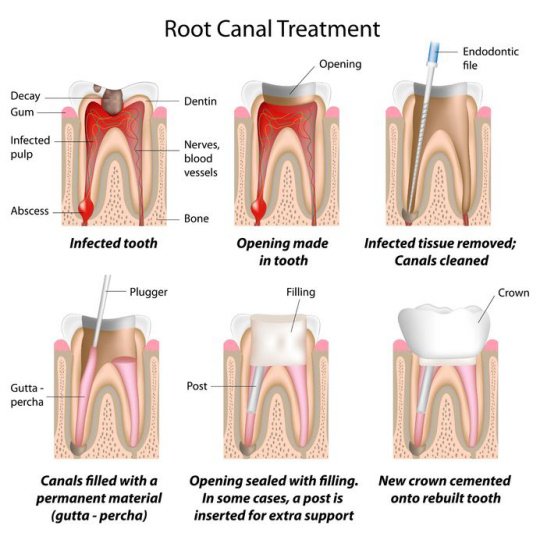Pulpitis is a condition where the dental pulp becomes inflamed, dental pulp being a substance in the center of the tooth made up of connective tissue and cells. This then causes sensitivity to hot and cold foods or very sweet foods and in some cases a chronic throbbing pain. Usually it is caused by dental caries that can penetrate through the enamel and dentin layers of the tooth to reach the pulp, or by trauma that damages those layers. From here the pulp is then infected by a bacterial infection resulting in inflammation and pain. Pulp can also be infected by decay that has reached the interior of the tooth.
Repetitive trauma however might also cause the pulp to become inflamed without infection, which might be the result of a misaligned jaw, or grinding in the night. Likewise if something such as a food or toxin has come into contact with the pulp, then this too can cause the swelling and immune response. The pain is a result of the pressure of the pulp as it swells against the inside walls of the tooth.
Treatment
Treatment will usually begin by treating the cause of the pulpitis which will involve the removal of any irritant. This could be a carious lesion, or something that has penetrated the outer layers of the tooth. Following this the pulp will normally recover, and a filling can be used in order to prevent further irritants from getting into the center of the tooth.
In some cases, known as ‘irreversible pulpitis’, simply removing the irritant from the pulp will not be sufficient to stop the pulpitis. In such situations it is necessary for the pulp to be removed by root canal (it may be replaced by gutta percha), or for the entire tooth to be pulled. This is the case in any instance where the pulp has become infected – as pulpitis cannot be treated by antibiotics (though they may be used to suppress the infection until the root canal can be performed).



